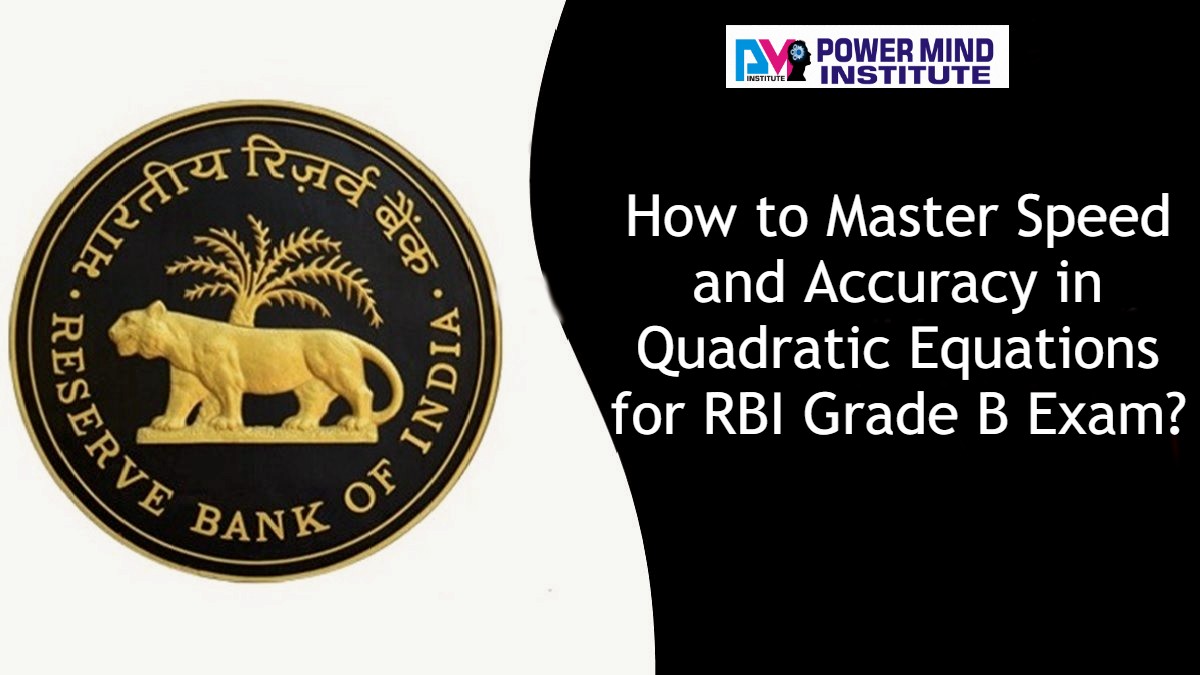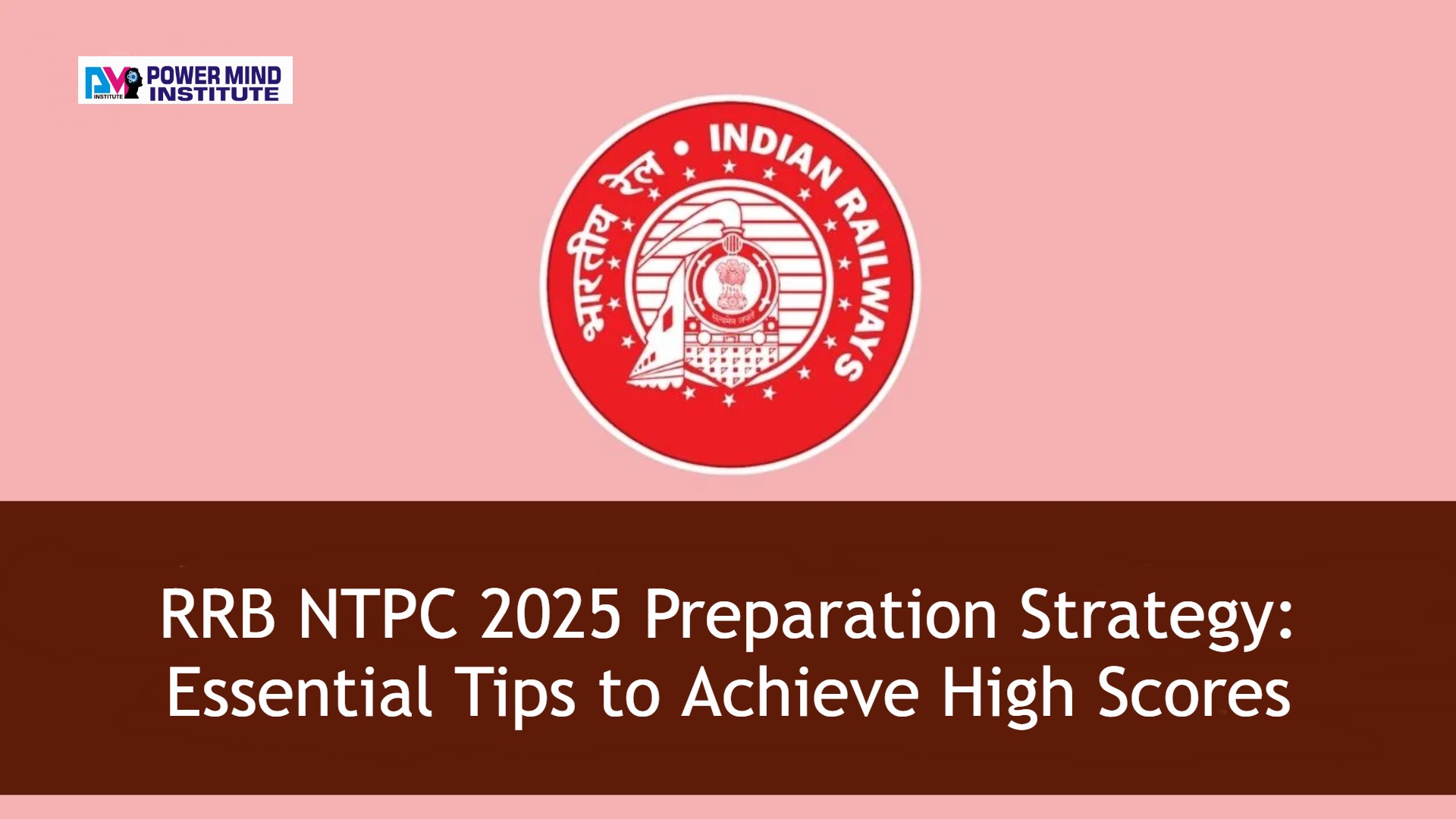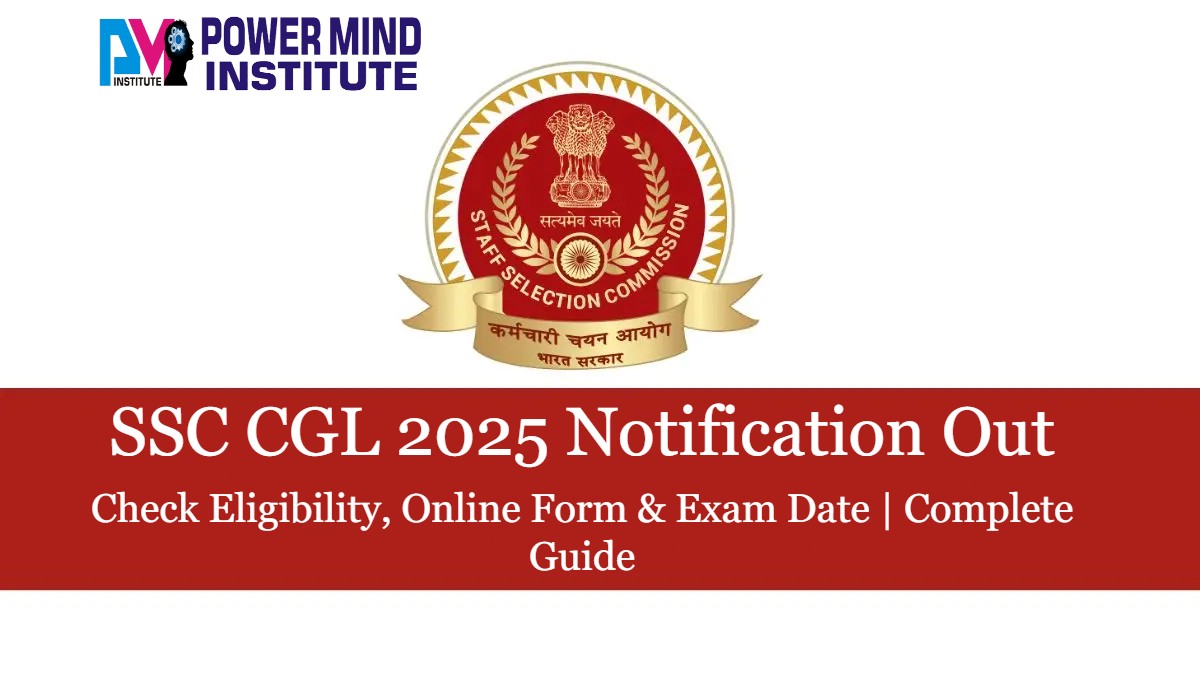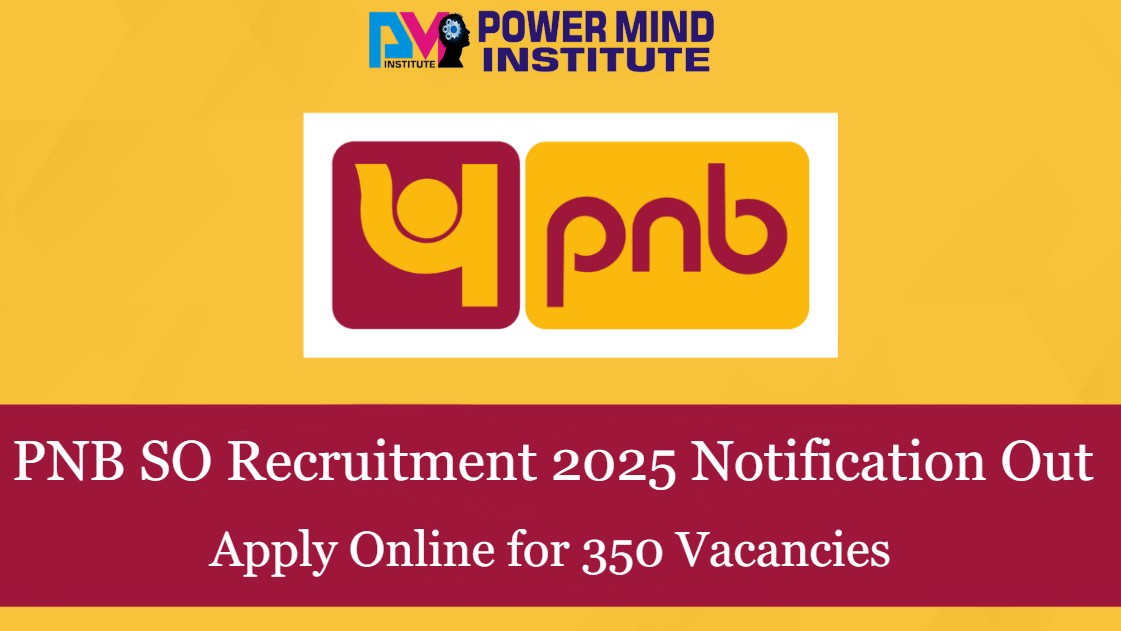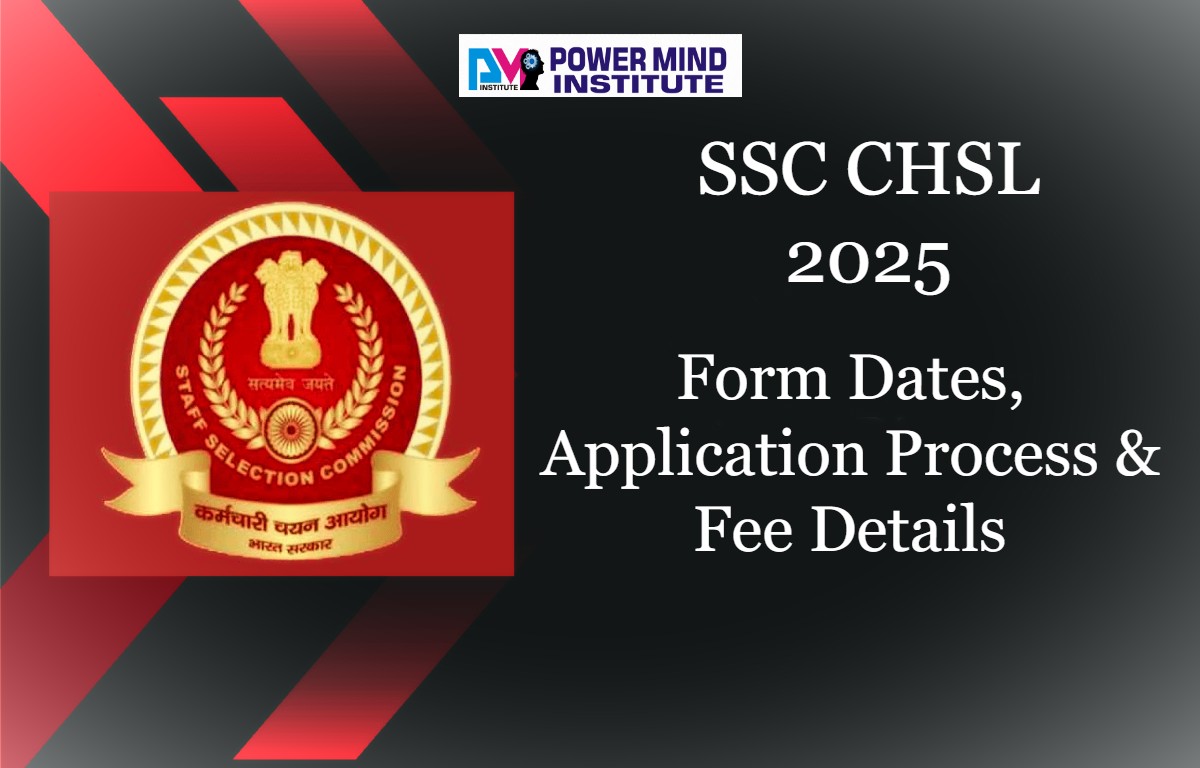A big decision for anyone hoping to work for the government is whether to choose the Bank PO (Probationary Officer) or SSC (Staff Selection Commission) exam. Although both routes have bright career prospects, they differ in terms of exam patterns, job descriptions, and potential for professional advancement. Candidates in Jaipur or elsewhere can make an informed choice depending on their tastes and aims by being aware of the subtle differences between the two exams.
Power Mind Institute, the top Jaipur-based institution for SSC and Bank PO exam preparation, can help you decide if you're still unsure which exam to take. The institute will help you make the best decision and succeed by providing materials and professional instruction for both exams.
This blog will compare SSC with Bank PO, with an emphasis on several topics, including preparation, career advancement, job profiles, and exam methodology. Now let's get started.
What is SSC (Staff Selection Commission)?
The Indian government's Staff Selection Commission (SSC) administers hiring exams for a range of jobs in ministries and departments. The SSC exams are extremely competitive and are used to choose applicants for several positions in ministries, departments, and organizations within the central government.
Important SSC Exams
Some of the crucial SSC exams are:
- SSC CHSL (Combined Higher Secondary Level)
- SSC CGL (Combined Graduate Level)
- SSC JE (Junior Engineer)
- SSC MTS (Multi-Tasking Staff)
What is the Bank PO (Probationary Officer) Exam?
A bank's probationary officer, or PO, is a managerial position. The job entails some responsibilities, including overseeing bank branches, managing administrative activities, resolving consumer inquiries, and managing clerical employees. Several public sector banks, including SBI, IBPS, and RBI, administer the Bank PO exam, which is one of the most sought-after tests for applicants hoping to work in banking.
Important Bank PO Exams
- SBI PO
- IBPS PO
- RBI PO
Exam Pattern: SSC vs Bank Po
Exam format, syllabus, and level of difficulty vary between the SSC and Bank PO exams. You can better grasp the main distinctions by looking at the comparison below:
- SSC Exam Pattern
The main purpose of the SSC exams is to evaluate a candidate's understanding and effectiveness in areas such as:
- General Awareness
- General Intelligence and Reasoning
- English Comprehension
- Quantitative Aptitude
This exam consists of different levels:
- Preliminary Exam: An exam consisting of multiple-choice questions (MCQs) that evaluate the candidate's understanding of the aforementioned topics.
- Main Exam: A more thorough and sophisticated exam that assesses a candidate's analytical skills and deeper comprehension.
- Interview: After passing the written exams for some exams, such as the SSC CGL, the ultimate selection process entails an interview.
2. Bank PO Exam Format
The Bank PO exam usually follows a three-tier process:
- Preliminary Exam: This exam contains sections like Quantitative Aptitude, Reasoning Ability, and English Language.
- Main Exam: Consists of more challenging sections like Banking Awareness, Computer Knowledge, English Language, Data Interpretation, and General Awareness.
- Interview: The last stage mainly includes an interview, during this interview aspirants are assessed for their leadership qualities, communication skills, and personality.
While numerical ability, reasoning, and English are the main topics of both tests, Bank PO exams are typically more difficult since they include specialist components like computer skills and banking awareness.
Job Profile: SSC vs Bank PO
SSC and Bank PO workers have quite different job profiles. What to anticipate in each role is as follows:
- SSC Job Profile
The job profiles vary depending on the exam you choose, and SSC exams cover a wide range of occupations across many divisions. The following are a few typical roles:
- SSC CHSL: This includes posts like Data Entry Operator (DEO), Lower Division Clerk (LDC), or Postal Assistant.
- SSC CGL: This exam will help you get appointed as Inspector Auditor, Tax Assistant, and Assistant Section Officer in different government departments.
- SSC MTS: A Multi-Tasking Staff (MTS) handles office duties like handling correspondence, assisting higher officials with clerical tasks, and filing.
Employment in the SSC industry provides security, a set work environment, and lots of chances for advancement and transfer.
- Bank PO Job Profile
The employment function of a Bank PO is managerial and dynamic. The following are some of the main duties:
- Branch Management: Overseeing clerks, managing everyday banking operations, and making sure the branch runs well.
- Customer Interaction: Handling new account openings, consumer complaints, and inquiries.
- Administrative Duties: Carrying out a range of management and administrative duties in the regional or branch office.
- Loan Processing: Overseeing documentation and the loan approval procedure.
A higher income, greater exposure to the corporate world, and a fast-paced work environment are all benefits of the Bank PO position. Additionally, there are more prospects for advancement in the banking industry, particularly for individuals who do well and advance to higher managerial roles.
Career Opportunities and Growth: SSC vs Bank PO
Long-term career advancement is provided by both SSC and Bank PO, although the opportunities are very different.
- Career Growth in SSC
Career growth in the SSC industry often follows a set hierarchical structure, and career advancement is comparatively predictable. You should anticipate the following:
- Promotions: Promotions are contingent on seniority and performance for government department employees. Higher-level roles could include Senior Auditor, Deputy Director, or Assistant Director.
- Job Security: SSC is a popular choice for people who want stability because government employment is renowned for its pension schemes and work security.
- Transfer Opportunities: Depending on organizational needs, SSC staff are frequently moved around the nation.
- Career Growth in Bank PO
A career as a bank PO enables faster progression, with people advancing to managerial positions more quickly. In the banking industry, promotions are usually given based on merit, therefore you can anticipate the:
- Climbing the Ladder: You may advance to positions such as Assistant Manager, Deputy Manager, and ultimately Branch Manager after two to three years.
- Possibilities for Specialization: Bank POs may choose to focus on corporate banking, investment banking, or risk management.
- International Opportunities: Some workers of public sector banks, like SBI, have the opportunity to work abroad, which can lead to a global career.
Benefits and Salary: SSC vs Bank PO
- SSC Benefits and Salary
Depending on the role and degree of responsibility, SSC salaries vary. These are the approximate ranges for salaries:
- SSC CHSL: ₹18,000 to ₹25,000 per month
- SSC CGL: ₹ 25,000 to ₹ 40,000 per month
- SSC MTS: ₹ 18,000 to ₹ 22,000 per month
SSC workers receive benefits like health insurance, paid time off, pension programs, and other government benefits in addition to their pay.
- Bank PO Benefits and Salary
Bank PO positions pay more than SSC positions. For instance:
- Beginning Salary: ₹40,000 to ₹55,000 per month, contingent on area and bank.
- Benefits: Bank PO staff members are also eligible for additional benefits such as pension plans, medical insurance, leave encashment, and housing allowance.
Which is Better: SSC or Bank PO?
Your long-term objectives, work-life balance preferences, and career aspirations will ultimately determine whether you choose SSC or Bank PO.
- SSC is perfect for people looking for a set work environment, a government position, and a slower but consistent professional progression trajectory.
- Bank PO is ideal for people seeking a dynamic, demanding work environment in the banking industry, as well as higher pay and quicker career advancement.
The best place to study for the SSC and Bank PO exams in Jaipur is Power Mind Institute, if you're seeking professional tutoring for either exam. The institute provides the perfect program to help you ace your chosen exam with individualized instruction, mock tests, with a successful track record.
Conclusion
Both SSC and Bank PO offer distinct advantages and are great career options in the banking and government industries. Spend money on good preparation whether you decide to take the SSC exam for government jobs and employment security or go for the more exciting, higher-paying Bank PO position. Personalized supervision, knowledgeable professors, and extensive study resources make Power Mind Institute in Jaipur the ideal venue to begin your path toward passing the SSC or Bank PO exam.
Let Power Mind Institute assist you in reaching your professional objectives by making informed decisions!

